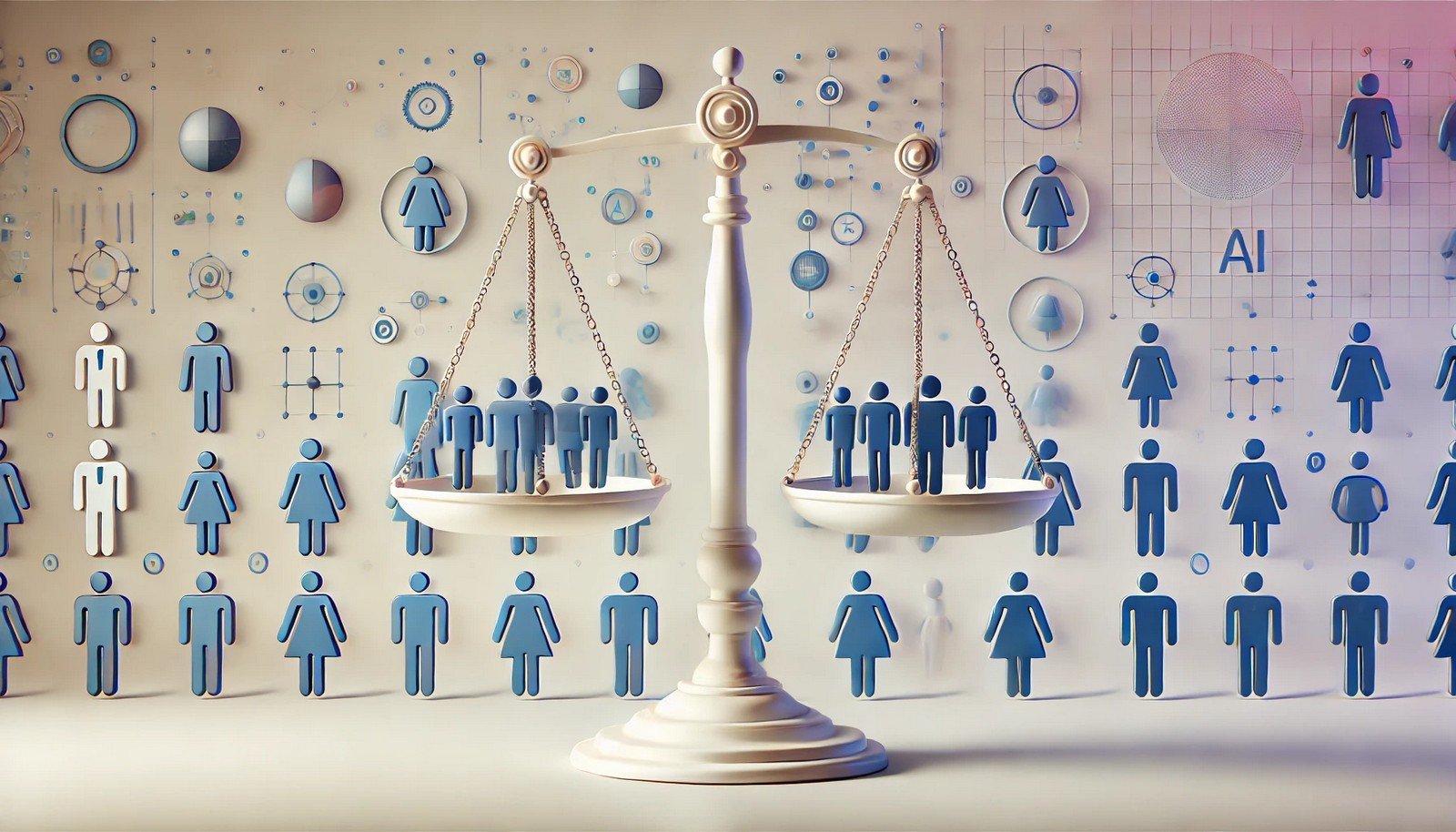Algorithmic Fairness

Quick Navigation:
- Algorithmic Fairness Definition
- Algorithmic Fairness Explained Easy
- Algorithmic Fairness Origin
- Algorithmic Fairness Etymology
- Algorithmic Fairness Usage Trends
- Algorithmic Fairness Usage
- Algorithmic Fairness Examples in Context
- Algorithmic Fairness FAQ
- Algorithmic Fairness Related Words
Algorithmic Fairness Definition
Algorithmic Fairness is the pursuit of ensuring that algorithms operate equitably across diverse groups, reducing bias and unfair outcomes. It involves designing, testing, and refining machine learning models to make them fair across demographic and socio-economic groups. This concept is particularly relevant in areas like criminal justice, hiring, and lending, where biased algorithms could lead to significant social and economic consequences.
Algorithmic Fairness Explained Easy
Think of it like a game referee who needs to treat all players fairly, regardless of their skill level or background. In the same way, algorithmic fairness makes sure that algorithms don’t treat people unfairly or show bias.
Algorithmic Fairness Origin
Algorithmic Fairness emerged with the rise of AI applications in critical decision-making areas, highlighting the need to prevent biases embedded in data or model training from influencing results.
Algorithmic Fairness Etymology
The term reflects the dual focus on “algorithm” (a set of rules or processes followed by machines) and “fairness,” emphasizing the goal of equitable outcomes for all users.
Algorithmic Fairness Usage Trends
The push for fairness in algorithms has grown alongside AI's integration into high-stakes areas like finance, healthcare, and criminal justice. Policymakers, companies, and researchers are increasingly focused on developing frameworks that assess and mitigate algorithmic bias.
Algorithmic Fairness Usage
- Formal/Technical Tagging:
- AI Ethics
- Machine Learning
- Fairness in Algorithms - Typical Collocations:
- "algorithmic bias"
- "fair AI systems"
- "ethics in machine learning"
- "equitable algorithm design"
Algorithmic Fairness Examples in Context
- Algorithms in hiring platforms should not favor one demographic over another.
- Credit scoring systems using algorithmic fairness aim to provide equal opportunity for loan approval.
- Facial recognition algorithms are being designed to work accurately across all skin tones.
Algorithmic Fairness FAQ
- What is algorithmic fairness?
Algorithmic fairness ensures that algorithms treat all groups equitably, minimizing bias in outcomes. - Why is algorithmic fairness important?
Without fairness, algorithms may produce biased results that impact individuals or groups negatively, especially in sensitive applications like hiring or healthcare. - How is algorithmic fairness achieved?
It requires careful data selection, unbiased model training, and continuous testing across diverse populations. - What are common challenges in ensuring algorithmic fairness?
Challenges include limited data diversity, biased historical data, and complex model interpretations. - Can an algorithm ever be perfectly fair?
Perfect fairness is challenging due to inherent biases in data, but algorithms can be optimized for reduced bias. - How does bias occur in algorithms?
Bias can result from skewed training data, flawed design, or lack of diverse representation. - What are the consequences of unfair algorithms?
Unfair algorithms can perpetuate social inequalities, leading to unjust decisions in areas like employment, justice, or finance. - Is algorithmic fairness a legal requirement?
In many regions, laws against discrimination in automated systems are emerging, making fairness essential. - What role do ethics play in algorithmic fairness?
Ethics guide the commitment to fairness, promoting accountability in AI practices. - How can companies ensure algorithmic fairness?
They can implement fairness audits, use diverse datasets, and regularly test their models for biased results.
Algorithmic Fairness Related Words
- Categories/Topics:
- AI Ethics
- Bias in Machine Learning
- Equity in Technology
Did you know?
Algorithmic fairness became a top priority after several high-profile cases revealed biases in AI applications, such as facial recognition software misidentifying individuals from certain ethnic groups. This sparked widespread research and policy initiatives aimed at creating unbiased AI systems.
PicDictionary.com is an online dictionary in pictures. If you have questions or suggestions, please reach out to us on WhatsApp or Twitter.Authors | Arjun Vishnu | @ArjunAndVishnu

I am Vishnu. I like AI, Linux, Single Board Computers, and Cloud Computing. I create the web & video content, and I also write for popular websites.
My younger brother, Arjun handles image & video editing. Together, we run a YouTube Channel that's focused on reviewing gadgets and explaining technology.



Comments powered by CComment